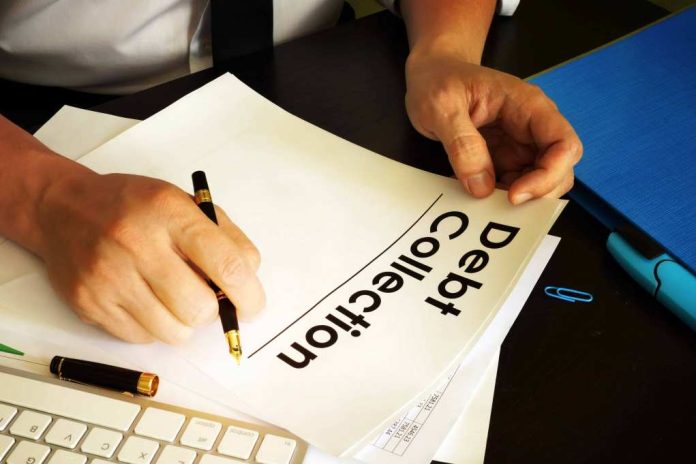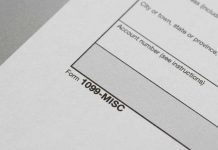
Can credit repair companies remove collections from your credit report? This is a question we’ve seen asked so often here at Daily Propser that today, we’re going to address it once and for all. We’ll take a deep look at the capabilities of credit repair companies – specifically, as it pertains to collections.
Not everyone is great when it comes to their credit score. If you are a part of the people that are struggling, then you’re not alone. Even if you have made mistakes in the past like having an account gets sent to collections, that doesn’t mean your credit score is destroyed for life. Instead, you will need to actually focus on ways that you can improve your credit and learn from your mistakes.
Now, with that said, let’s begin with an overview of credit in general. Then, we’ll discuss the question you came here seeking an answer to: can credit repair companies remove collections?
Understand Your Credit Score Before Seeking Credit Repair Companies to Remove Collections
Before understanding ways to deal with credit score issues, it is important that you get a full look at your score. This means understanding what a score is, how this score is calculated etc.
Your score is a number generally between 300 and 850. Credit bureaus calculate this score using the information found on your credit report. There are 3 major credit bureaus which are Experian, Equifax, and Transunion. Your credit report has information about your credit file to help these major credit bureaus calculate your score.
There are 2 main scoring models that credit bureaus use. There is either the FICO model or the VantageScore model. But, it is important to keep in mind that the FICO model is way more popular. That’s because it’s used by 90% of top lenders!
What Factors Affect Your Score?
Since the FICO Scoring model is used by more lenders, that is the model we will be using as a reference for the factors that affect your score. There are 5 main factors that impact your score which are
- Payment History: How you repay your bills is an important factor in your score. In fact, it accounts for 35% of it! Your payment history details information about how you handle your debt like whether or not you have any late payments, credit card debt, etc. Learn more in our article discussing whether or not credit repair can remove late payments.
- Credit Usage: This is also known as your credit utilization ratio and it’s the 2nd most important factor, accounting for 30% of it! This is the total amount of credit you can use (your credit limit) compared to your current credit usage. For example, if your credit limit is $1,400 and you are currently using $840 then your credit utilization rate is 60%.
- Credit Age: This speaks to the age of your newest credit accounts, the average age of your credit accounts, etc. Your credit age accounts for 15% of your score!
- Hard Inquiries: Hard inquiries can impact your credit score while soft inquiries cannot. Consumers can expect to see a hard inquiry when applying for new lines of credit. That’s because hard inquiries allow a lender to get an in-depth look at your credit file once a consumer provides authorization.
- Variety of Credit Types: Having a variety of different credit types should be a factor to keep in mind. While it only accounts for 10% of your score, it is still something to be aware of!
Where Does Your Score Fall?
Now that you know what factors impact your credit score, you can get a better understanding of what that means for your credit score specifically. There are different categories for different scores. For example, a score of 751 is considered very good while a credit score of 485 is considered very poor. Each scoring model will have its own categories of scores. For the FICO scoring model:
- Poor (scores between 300-579)
- Fair (scores between 580-669)
- Good (scores between 670-739)
- Very Good (scores between 740-799)
- Exceptional (scores between 800-850)
However, the VantageScore model is a little different. For the VantageScore model:
- Very Poor (credit scores that are between 300-499)
- Poor (credit scores that are between 500-600)
- Fair (credit scores that are between 601-660)
- Good (credit scores that are between 661-780)
- Excellent (credit scores that are between 781-850)
What Does It Mean to Deal with Collection Accounts?
Now that you have a better understanding of your credit report and credit in general, what exactly does it mean to have your account sent to collections? Read on below to discover the answer…
It can be hard to handle payments properly. They must be repaid on time and in full when they are due. However, it may be easier said than done, especially for those dealing with financial hardship. If you fall behind on your payments, your creditor may decide to move your account to a collection agency. Collection agencies are organizations that try to get debt back that borrowers owe creditors. These agencies are no walk in the park. That’s because collection agencies would be the ones responsible for handling the process of getting back the money that you owe!
Collection accounts can be stressful to deal with. It can be even more stressful when you are dealing with debt collectors on behalf of the collection agency. Luckily, you can typically expect a creditor to submit letters before sending your account off to collections. There are plenty of ways that you can handle accounts that have been sent to collections if you are dealing with them.
So, Can Credit Repair Companies Remove Collections?
Now – it’s time to address the question you came here with today. Can credit repair companies remove collections from your credit report? The answer is – as with most things – it depends. You can only get collections removed from your account if it’s illegitimate or incomplete. If the collection account on your credit report is legit, there is nothing that credit repair companies can do!
This is the same answer we give when people ask related questions – such as can credit repair remove student loans?
However, not all hope is lost. If you want to learn more about removing collections from your credit report, keep reading below.
How to Remove Collection Accounts from Your Credit Report
Similar to how to remove eviction from your credit report, there are ways you can go about rectifying the situation. If you have a collection account on your credit report, there may be more ways to handle it than you realize. You can:
- Request a Goodwill Deletion
- Wait Until It Falls Off
- Dispute Inaccurate or Incomplete Collection Accounts
Request a Goodwill Deletion
One option that people can consider is goodwill deletion. This involves asking either the debt collection agency or the creditor to remove the collection account from your credit report. Typically, you can expect the process to involve writing a letter. Known as a goodwill deletion letter, you will want to explain your mistake, identify what happened, and ask for forgiveness. Your letter should have details that explain why you won’t make this mistake again in the future! While a goodwill deletion letter is a great effort, it may not result in any change, but it’s free so it’s worth a shot! You may be able to get the collection account removed from your credit report.
Wait Until it Falls Off
One benefit of your credit report is that typically negative items don’t stay on there forever. Instead, they will fall off after a certain period of time. Late payments will stay on your credit report for up to 7 years. However, hard inquiries would only stay on your credit report for up to 2 years. You can expect accounts sent to collections to fall off in about 7 years.
Dispute Inaccurate or Incomplete Collection Accounts
If you see that the accounts are inaccurate or incomplete, you can dispute them off your report. That’s because thanks to the Fair Credit Reporting Act (FCRA), credit bureaus must report accurate information on a consumer’s credit report. If a collection account isn’t 100% accurate then you can submit a dispute!
There are two ways to handle a dispute. You can either:
- Handle the dispute process on your own
- Get help from a credit repair company
Handle the Dispute Process on Your Own
The dispute process is pretty simple. First, you will want to get a copy of your credit report. You can get a free one every year by visiting AnnualCreditReport.com. Once you receive the free copy of your credit report you will want to review it. When reviewing it, you will want to look for any inaccurate or incomplete information. If you find any items that are inaccurate or incomplete, you can submit a dispute to the credit bureau. However, besides submitting to just one credit bureau, you could choose to submit to all three of the main ones!
After submitting the dispute claim, the credit bureaus have 30 days to investigate and respond (however they may have more time in special cases). If the item is found by the credit bureaus to be inaccurate, they will need to remove the item from the consumer’s credit report. Once removed, the negative impact it had will be gone!
Get Help from a Credit Repair Company
Another option that people choose is to get help from a credit repair company. Credit repair companies are organizations that handle the dispute process on behalf of the consumer. That means instead of the consumers requesting their credit report, reviewing for any errors, etc., the credit repair company would do it. If the companies find an item to dispute they would be the ones submitting the dispute to the credit bureau.
Credit repair companies are not free. On average, a consumer can expect them to cost between $50 to $150 a month. The cost will depend on the credit repair services you get, the credit repair company you go to, etc. That’s why it’s important to keep in mind that even though they can save time and effort, they do not provide services that consumers cannot do on their own.
Luckily, this industry is regulated by laws. The Credit Repair Organizations Act (CROA) is a piece of legislation that aims to help consumers. People can use this act as a guideline when finding legit credit repair companies.
Additional Tips for Credit Repair and Collections Removal
Now that we’ve answered your question – can credit repair companies remove collections accounts? – we want to provide you with some more tips for credit repair in general. Whether you’re interested in credit repair for veterans or credit repair for low-income families, the advice below will help.
If you want to improve your credit score, there are plenty of ways that you can improve your score. You can:
- Be Better at Managing Your Credit
- Get Assistance from a Credit Counselor
Be Better at Managing Your Credit
The way that you manage your score is an important part of your score’s health. That’s because it can help you avoid the same mistakes you made in the past. If you want to have better credit management skills, you can:
- Keep your credit utilization rate below 30%
- Pay your bills on time when they are due in full
- Regularly watch your credit
- Only apply for new credit when you need it
- Don’t submit too many hard inquiries at once
Get Assistance from a Credit Counselor
Another option that can help those in need are credit counselors. A credit counselor is a trained and certified professional that works at a credit counseling agency. Credit counseling agencies are typically non-profit organizations that aim to help consumers with a variety of issues that they may face.
Since credit counseling agencies are generally nonprofit, that means people can expect to receive this guidance, education, and advice for free. The advice that consumers receive can help them get a plan of action together for their specific financial situation. Learn more about the difference between credit repair vs credit counseling in our blog.
Can Credit Repair Companies Remove Collections? Wrapping Things Up
So, can credit repair companies remove collections? Only when the collections on your credit report are there by mistake. Otherwise, you’ll have to wait for the collections to fall off your record, or request removal yourself.
Remember – late payments can cause a serious drop in your credit score. That’s because they are a part of your payment history which accounts for 35% of your score! If you have a late payment on your credit report, there are a few things you can do. You can:
- Request a Goodwill Deletion
- Wait Until It Falls Off
- Dispute Inaccurate or Incomplete Collection Accounts
If you are thinking about using a credit repair company to handle the dispute process, it is important to be mindful. That’s because credit repair companies can only dispute inaccurate or incomplete items. This means that if the collection account on your credit report is legit, it will stay on there until it falls off or you request a goodwill deletion. If you want to learn more about this topic, check out one of our related articles on credit repair vs chapter 7 bankruptcy!




























